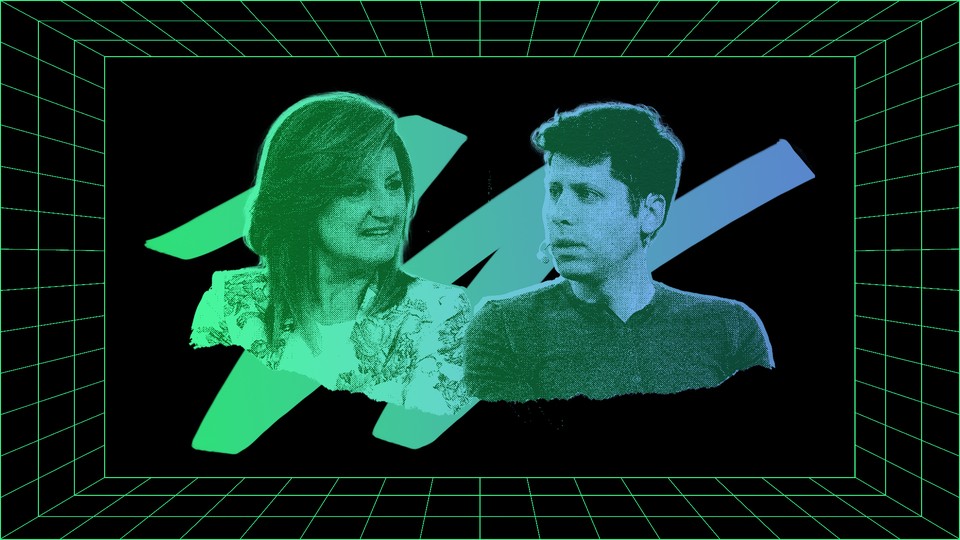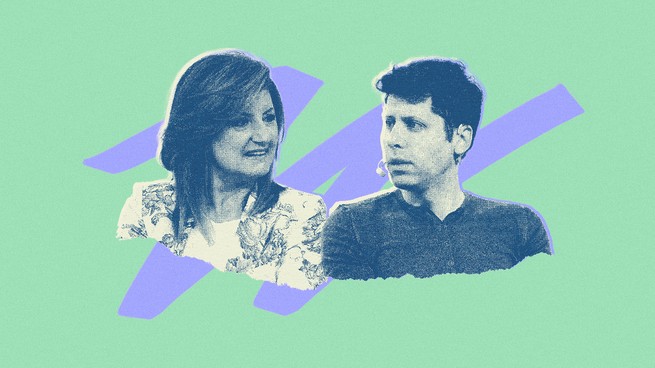Would You Put Your Health in AI’s Hands?
3 min read
This is Atlantic Intelligence, a limited-run series in which our writers help you wrap your mind around artificial intelligence and a new machine age. Sign up here.
OpenAI CEO Sam Altman and the entrepreneur Arianna Huffington spoke with my colleague Charlie Warzel earlier this week about their ambitions to remake the American health-care system with generative AI. They will do this through Thrive AI Health, a joint venture they announced on Sunday that will purportedly offer a chatbot that provides behavioral advice according to one’s specific health needs. (No actual product, let alone a release date, has been announced yet.) The future chatbot could, for example, take stock of a diabetic user’s biometric data and make a nutrition- or exercise-based recommendation that fits into their schedule. “I think there are only a handful of use cases where AI can really transform the world,” Altman told Charlie. “Making people healthier is certainly one of them.”
Charlie remarked in his article that AI is now a technology of faith. Today, chatbots get information wrong all the time—I would hesitate to trust their advice about watering a philodendron, let alone what to put in my body. But proponents of the technology promise that something grand is just around the corner. “Whatever is built today is judged partially on its own merits, but also—perhaps even more important—on what it might presage about what is coming next,” Charlie writes.
The vision is tempting, of course: As Huffington said, “our health-care system is broken and … millions of people are suffering as a result.” But some problems may simply be too big for a bot to handle.

AI Has Become a Technology of Faith
By Charlie Warzel
An important thing to realize about the grandest conversations surrounding AI is that, most of the time, everyone is making things up. This isn’t to say that people have no idea what they’re talking about or that leaders are lying. But the bulk of the conversation about AI’s greatest capabilities is premised on a vision of a theoretical future. It is a sales pitch, one in which the problems of today are brushed aside or softened as issues of now, which surely, leaders in the field insist, will be solved as the technology gets better. What we see today is merely a shadow of what is coming. We just have to trust them.
I had this in mind when I spoke with Sam Altman and Arianna Huffington recently.
Read the full article.
What to Read Next
- The real lesson from The Making of the Atomic Bomb: “A generation of AI researchers treat Richard Rhodes’s seminal book like a Bible as they develop technology with the potential to remake—or ruin—our world,”Charlie wrote in a prescient article last year.
- Every time you post to Instagram, you’re turning on a lightbulb forever: “To help save the planet, should we be using less data? Given how much of modern life depends on megabytes and teraflops, the answer could be a key facet to living nobly in the AI age,” Arthur Holland Michel writes.
P.S.
There’s another way to think about Thrive AI Health: Companies are still trying to figure out what generative AI is truly good for. As David Karpf wrote of the technology earlier this year, “The novelty wears off. ChatGPT is not omniscient. It has neither personality nor perspective. How often do you actually need a computer to produce some fake Shakespeare for you, anyway?”
— Damon



